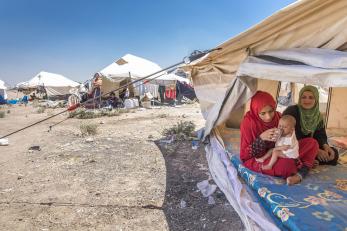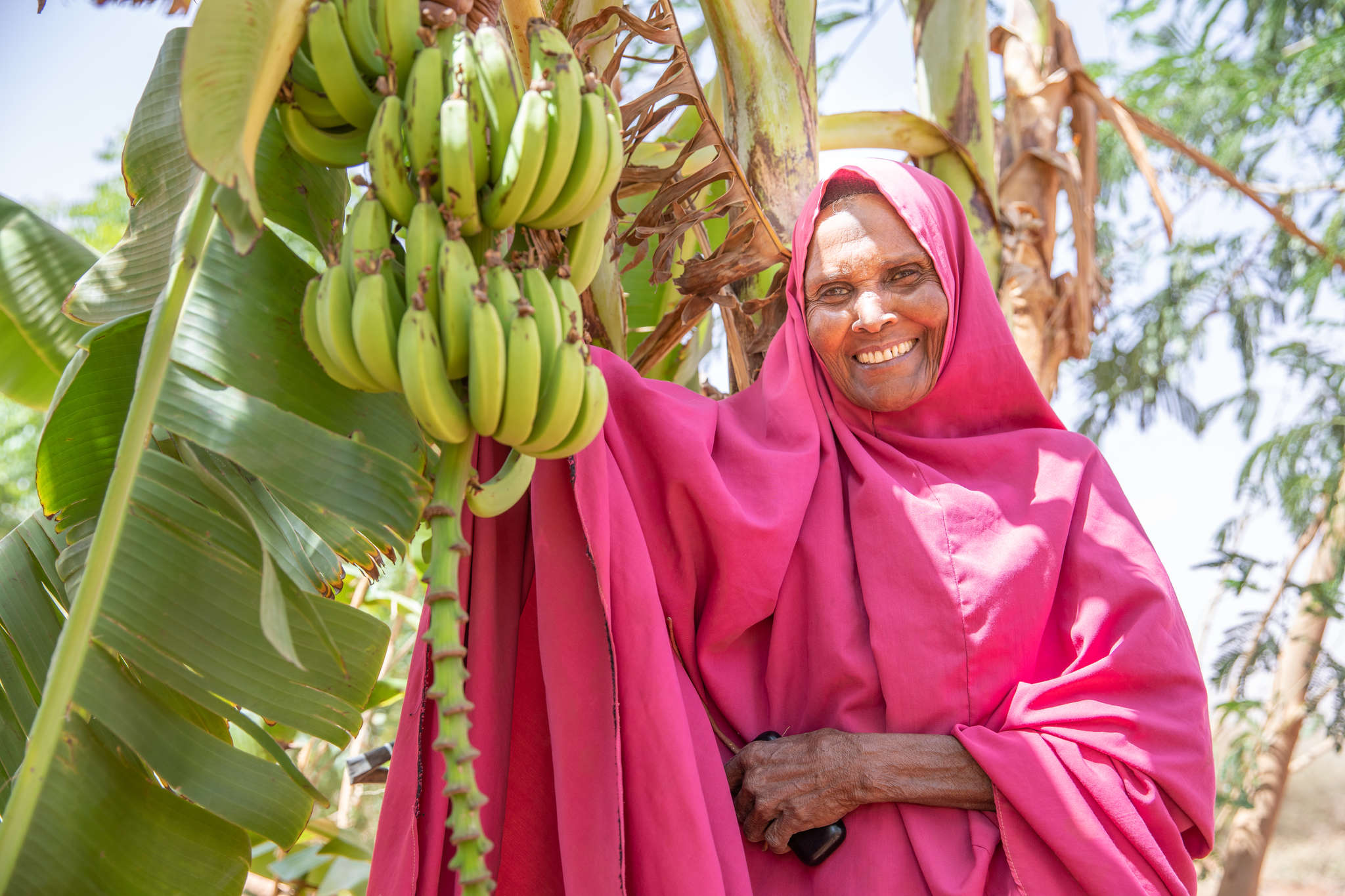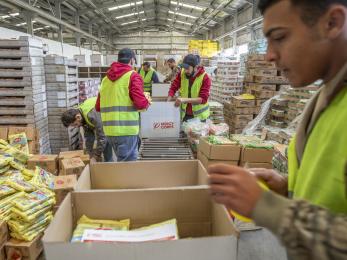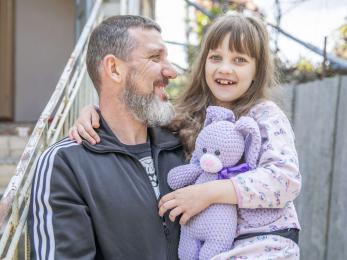Raqqa gripped by humanitarian crisis after months of fighting

The war-ravaged Syrian city of Raqqa lies in ruins after it was captured from ISIS last week. Though the fighting may be over, the lack of food, power and water — as well as lingering threats of violence — could prevent residents from returning for months or years.
Mercy Corps is just outside the city, working to help those who escaped and are now sheltering in tents or under plastic sheets in informal camps. Food, bedding, hygiene supplies and kits for newborn babies are among the essential supplies Mercy Corps is providing to help meet the needs of thousands of displaced people.
“The end of the battle represents an acute moment of human crisis,” said Arnaud Quemin, Mercy Corps’ Country Director for Syria. “Approximately 80 percent of the city is uninhabitable, water sources have been damaged by the conflict, and there are no health services available in the city.
“Despite the challenges, people are anxious to return home or find more solid shelter before the onset of winter,” he said.
With fighting over, urgent needs emerge
Before the war, Raqqa was eastern Syria’s biggest city, but almost all of its more than 200,000 residents have been forced to abandon their homes. When the operation to retake it from ISIS control began last June, civilians were faced with the impossible choice of remaining under bombardment or fleeing through minefields and across frontlines while airstrikes and fighting on the ground raged around them.
What you need to know about the Syria crisis ▸
With the fighting now over, residents have had to navigate rubble strewn with booby traps and other improvised explosives and have little freedom of movement as conflict continues in other parts of Syria.
Mercy Corps’ teams and partners in Syria face some of these same dangers now in their quest to bring urgently needed supplies, with the movement of vital goods such as medicine heavily restricted. Work is coordinated closely with other aid agencies and local partners to reach as many in need as possible, yet vulnerable people remain in places that are too dangerous to enter.
“During the fighting, we saw hundreds of people flee their homes each day. The military operation may be over, but that doesn’t mean that families are safe now or have a home to go back to,” Quemin said.
Emergency relief for displaced families
In the last year alone, Mercy Corps met the urgent needs of 950,000 people inside Syria by distributing emergency food and supplies, increasing access to clean water and sanitation, improving shelters and creating safe spaces and activities to help children heal from the stress of war.
In informal camps on the outskirts of Raqqa, Mercy Corps teams are moving from tent to tent, identifying what people need and which families are the most vulnerable.
These camps are transitory, as families arrive and move on each day, trying to find safer places. Many have been displaced multiple times, depleting limited financial resources. Limited food supplies are often too expensive for many to purchase, and clean water is scarce. In response, Mercy Corps is delivering ready-to-eat meals for those unable to prepare and cook food in improvised shelters.
New arrival kits with basic household items, such as mattresses, blankets, floor mats and cooking sets are also being provided, and Mercy Corps is scaling up the response to include basic hygiene assistance, healthy baby kits and more for the new arrivals.
Most of the evacuees in the final days of the operation were women, children and the elderly. Some are suffering from injuries, and all are deeply traumatized.
Across northern Syria, between 20 to 60 percent of the population is now made up of displaced people. As winter approaches, residents of Raqqa want to return home, but all that awaits them is a destroyed city without food, water or heating.


